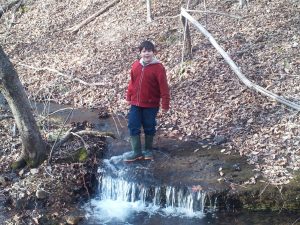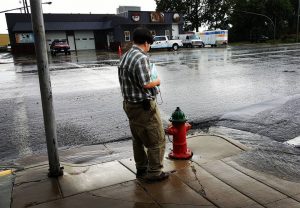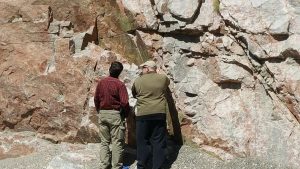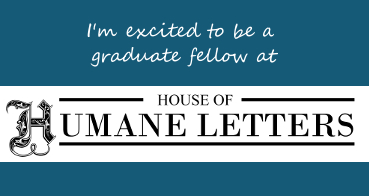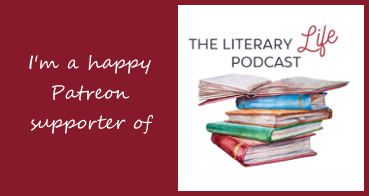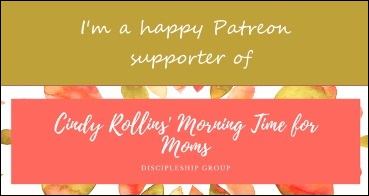This will be my attempt in the true meaning of Essay to explain what I have learned over these 16 years about Science and the teaching of it. I will be sharing in some kind of orderly fashion many ideas (but not all, by any means!) in my head that have accumulated over the years from studying about teaching and the actual teaching of my son. References will be made but no actual quotes will be made or cited. However, I’d imagine that whole thing will end with a Proverb. It’s inevitable. I cannot help myself.
I stole the title of the post from Wendell Berry. It is the name of a documentary about him and comes from what he would tell his children as they would walk about the land. One of the things that has been made evident to me over and over is that regardless of (or perhaps, because of) how advanced we (think) we are technologically in the 21st century, most of us have lost connection to nature — to what is real. We do not notice what is right before our eyes. We don’t take time to stop and look….deeply. To ponder. To wonder. To be humbled by it all. When you take time to look deeply, you realize how vast is the microscopic. You realize that it all began and continues without you. And the more you connect, the more you realize that although it began and continues without you, that what you do have is the power to destroy — and hopefully, that connection compels you to take personal responsibility to not destroy. Which brings up another point that I didn’t plan to address in this post, but here it goes. Some philosopher type that James and I have read recently made reference to the truth about global environmental issues, but noted that rather than being so focused globally, a person would do better to pick up the trash in his own backyard, as it were. James thinks this idea is from “that poet dude that Mom’s been reading”, as reported by his Dad, and that “poet dude” I’m almost certain would be Wendell Berry. (I said I would have no actual quotes, so forgive me for quoting my son.) I had wondered if it was Thomas Sowell, but I think James is right about the “poet dude” Wendell Berry. Anyhow, I was reminded of this idea when I saw a picture of the trash supposedly left behind on grounds where people were protesting about the lack of concern for global environmental issues. We love a cause. Especially when it’s way bigger than ourselves. But just Look and See, people. It’s all around you. Love your neighborhood.
Charlotte Mason has been our chief educational guide for the past 14 years. After years of  research, discussion and application in her community of educators and parents, she summarized her philosophy of education in 20 principles. Karen Glass has proposed that two of those principles are “the most vital”, those two being that Children are born persons and that Education is the Science of Relations. Relations. Connections. How the various subjects naturally connect with each other. (No forced unit studies, my people! Oh, dear, No! Stop interfering with the natural process!) And how we as persons ought to make a connection with the ideas of the various subjects. Look and See, people. Education is not the filling up of the head with Facts; it is making connections with the Ideas in stories, history, nature, art, music. We ponder. We wonder. We connect. We are changed.
research, discussion and application in her community of educators and parents, she summarized her philosophy of education in 20 principles. Karen Glass has proposed that two of those principles are “the most vital”, those two being that Children are born persons and that Education is the Science of Relations. Relations. Connections. How the various subjects naturally connect with each other. (No forced unit studies, my people! Oh, dear, No! Stop interfering with the natural process!) And how we as persons ought to make a connection with the ideas of the various subjects. Look and See, people. Education is not the filling up of the head with Facts; it is making connections with the Ideas in stories, history, nature, art, music. We ponder. We wonder. We connect. We are changed.
 So we come to the subject of Nature Study/Natural History/Science in a Charlotte Mason education. We find ourselves reading “old books”. Some people balk at this idea. The “science” is old. It’s wrong. It’s “bad science”. Aren’t we doing a disservice to our students to teach them these wrong facts? And I realize that these people have little understanding about the teaching of “science” — or really, “science”, for that matter. They may think that they do, but this reaction shows me that they do not. I think being opposed to “old books” with their “old science” is arrogant. As if the facts presented in 21st century textbooks are the absolute truth, never to be overturned. Pardon me, but I’m fixing to quote myself. I said this in a recent discussion: “Perhaps we should teach our children from the beginning that ‘science’ is really our best guess at the moment, and that what we think we know currently should never be presented as absolute fact, never to be overturned. James and I just read the second chapter in Seven Men Who Rule from the Grave where the author goes on about how we can never claim to really know it all — Science can never prove the absolute origin of life, for instance.”
So we come to the subject of Nature Study/Natural History/Science in a Charlotte Mason education. We find ourselves reading “old books”. Some people balk at this idea. The “science” is old. It’s wrong. It’s “bad science”. Aren’t we doing a disservice to our students to teach them these wrong facts? And I realize that these people have little understanding about the teaching of “science” — or really, “science”, for that matter. They may think that they do, but this reaction shows me that they do not. I think being opposed to “old books” with their “old science” is arrogant. As if the facts presented in 21st century textbooks are the absolute truth, never to be overturned. Pardon me, but I’m fixing to quote myself. I said this in a recent discussion: “Perhaps we should teach our children from the beginning that ‘science’ is really our best guess at the moment, and that what we think we know currently should never be presented as absolute fact, never to be overturned. James and I just read the second chapter in Seven Men Who Rule from the Grave where the author goes on about how we can never claim to really know it all — Science can never prove the absolute origin of life, for instance.”
When people oppose the old books they have failed to understand the purpose of teaching science. Perhaps if someone wrote books in the style of these old books, these old books could be replaced. But any new information in the newer books really doesn’t matter. What matters is that we are encouraged to Look and See. And that is what these old living science books do. What we Know at this hour, or think we Know, will be overturned — sometimes in a matter of minutes. And we can never Know absolutely. But we are built to be curious about everything. Even the origin of the species. So we Look and Ponder and Wonder and Connect and Care. That is what we want for our children. That is what we want for ourselves.
science. Perhaps if someone wrote books in the style of these old books, these old books could be replaced. But any new information in the newer books really doesn’t matter. What matters is that we are encouraged to Look and See. And that is what these old living science books do. What we Know at this hour, or think we Know, will be overturned — sometimes in a matter of minutes. And we can never Know absolutely. But we are built to be curious about everything. Even the origin of the species. So we Look and Ponder and Wonder and Connect and Care. That is what we want for our children. That is what we want for ourselves.
And once again:
The question is not, –how much does the youth know? when he has finished his education — but how much does he care? and about how many orders of things does he care? In fact, how large is the room in which he finds his feet set? and, therefore, how full is the life he has before him? ~ Charlotte Mason
Great are the works of Yahweh,
studied by all who delight in them. ~ Psalm 111For now we see through a glass, darkly; but then face to face: now I know in part; but then shall I know even as also I am known. ~ Paul, an apostle of Jesus
Stay tuned. I just know there’s an appropriate Proverb.

